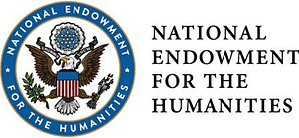
Landmarks of American History and Culture
National Endowment for the Humanities Program For K–12 Teachers
The deadline has passed for applications. Thank you for your interest.
Workshops
Session 1
- Online synchronous: June 3, 2023
- Residential: July 10-14, 2023
- Online synchronous: August 19, 2023
Session 2
- Online synchronous: June 10, 2023
- Residential: July 17-21, 2023
- Online synchronous: August 26, 2023
As Route 66 arrives at its centenary in 2026, teachers have time to capture and build upon a place that is iconic throughout history and to use this landmark to foster critical thinking and curricula embedded in social justice. For too long Route 66 has been remembered as a place for cruising, dancing the lindy, and finding vintage Coke bottles. Left out of this narrative is the history and culture of segregation that framed the experiences of others along Route 66. Flagstaff provides you with an opportunity to examine a wider narrative of Route 66. In Flagstaff’s Southside with its Green Book locations, murals and other sites, you will examine how different racial and ethnic groups were pulled to the Southside to serve, celebrate and entertain visitors traveling on Route 66. In addition, we will examine the complexities of Indigenous Communities and Route 66, which crosses more than 25 Sovereign Indigenous Nations.

The National Endowment for the Humanities: Democracy demands wisdom.
Any views, findings, conclusions, or recommendations expressed in this program do not necessarily represent those of the National Endowment for the Humanities.
Principles of Civility for NEH Professional
Development Programs
NEH Seminars, Institutes, and Landmarks programs are intended to extend and deepen knowledge and understanding of the humanities by focusing on significant topics, texts, and issues; contribute to the intellectual vitality and professional development of participants; and foster a community of inquiry that provides models of excellence in scholarship and teaching.
NEH expects that project directors will take responsibility for encouraging an ethos of openness and respect, upholding the basic norms of civil discourse.
Seminar, Institute, and Landmarks presentations and discussions should be:
- firmly grounded in rigorous scholarship, and thoughtful analysis;
- conducted without partisan advocacy;
- respectful of divergent views;
- free of ad hominem commentary; and
- devoid of ethnic, religious, gender, disability, or racial bias.
Endowment programs do not discriminate on the basis of race, color, national origin, religion, sexual orientation, disability, or age. For further information, write to the Equal Opportunity Officer, National Endowment for the Humanities, 400 7th Street, SW, Washington, DC 20024. TDD: 202-606-8282 (this is a special telephone device for the Deaf).
Depending on public health guidelines related to COVID-19, plans for a residential offering are subject to change.




